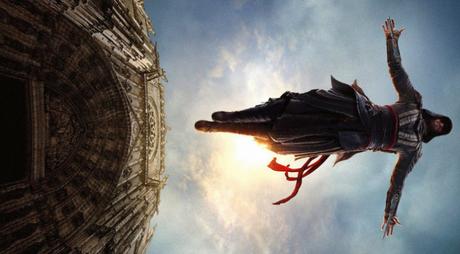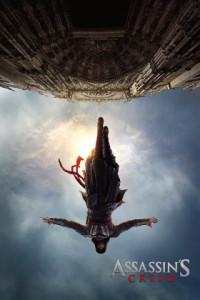
Review: Crafted from a game of the same title with movie-material gameplay and interesting pseudo-sci-fi premise; then helmed by Justin Kurzel, the man who successfully adapted the cursed play, along with the stars, Michael Fassbender and Marion Cotillard; Technically, Assassin's Creed would have made 'the first' beautifully compelling video-game adaptation. Yet, it simply doesn't.
Apparently, the culprit is the script, written by Michael Lesslie ( ) and retouched by Adam Cooper and Bill Collage ( Exodus, Allegiant ), which cannot accommodate the sense of excitement the game offers, and instead overplots it. Instead of moving the story forward, this Assassin's Creed is slowing it steps down with uneffective faux complexities.
The story (presented with choppy editing) starts with the initiation of Aguilar de Nerha (Michael Fassbender) to the Assassin's guilt as he recites the titular creed in Spanish Inquisition era. Shortly, the timeline cuts to 30 years before present days when a young Callum Lynch returns home finding his mother dies in the hand of an assassin, his own father. In the present day, Callum (also Fassbender) is sentenced death for a crime he committed and executed right after. Up to that point, Assassin's Creed hasn't even leapt the core.
The real Leap of Faith unravels when Callum is revealed to be still alive and kicking, in a facility run by Sophia Rikkin (Marion Cotillard), who works with his father, Alan Rikkin (Jeremy Irons), the founder of Abstergo Industries. The Rikkins are aiming for Callum's past, but not his childhood memory as depicted in the beginning; they aim for a further past, to his ancestor's memory, Aguilar's. Using a tool named Animus, The Rikkins access Aguilar's memory via his far descendant in order to obtain a relic called "The Apple of Eden," a source to free will, a key to cure violence.
There are moments when Assassin's Creed rides through your veins with non-stop parkour action and elegant fighting choreography to flaunt the gameplay which often captivates. With fascinating costumes and production design, as well as occult cinematography (seemingly taken directly from ), Assassin's Creed brings out the best part of the game when it is in Inquisition-mode in Animus. Outside the Animus, you will soon realize that video games usually have "Skip the Cut Scene" option for a reason.
While most video game adaptations suffer from 'lack of storytelling', Assassin's Creed suffers exactly the opposite of it. Faux complexities make it convoluted to the extent that, in terms of playing a game, it doesn't matter anymore; audiences need to only skip the cut scene and keep playing the action.
The script has a penchant to put sub-plots and "too striking" secondary characters, which do not develop effectively. While some sub-plots play important roles in building a more solid background story and crafting more urgency to the 'antagonists' motivation, but most of the time, those undeveloped and under-explained subplots emanates no rationale or justification of how they would move the story forward.
In addition, the thinly written characters are what makes those 'complex' narrative not working properly. Aguilar is a character with mission, but there's nothing beyond it. Why he even joined Assassin's guilt? The script also finds it hard to put a reasonable motivation to The Rikkins. Their scientist background is proven to be hasty and impact-less to some points. However, the most problematic character is actually Callum; his role practically stops at being a host to the Rikkins and his past. Serious talks about his childhood, his family line, and even his violent behavior is never really unraveled further.
In the end, Assassin's Creed' s chance to be the first video game adaptation that matters leaps directly into shortcomings as soon as it leaves the Assassins-mode. All the fun vertical actions and majestic looks of the Spanish Inquisition era presented magnificently by Justin Kurzel are no match to the disappointing faux-complex "cut scenes." You better wish there's a "Skip the Cut Scene" button for good.
Assassin's Creed (2016)


Action, Adventure, Sci-Fi Directed by:
